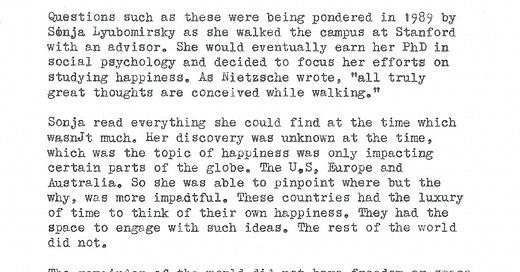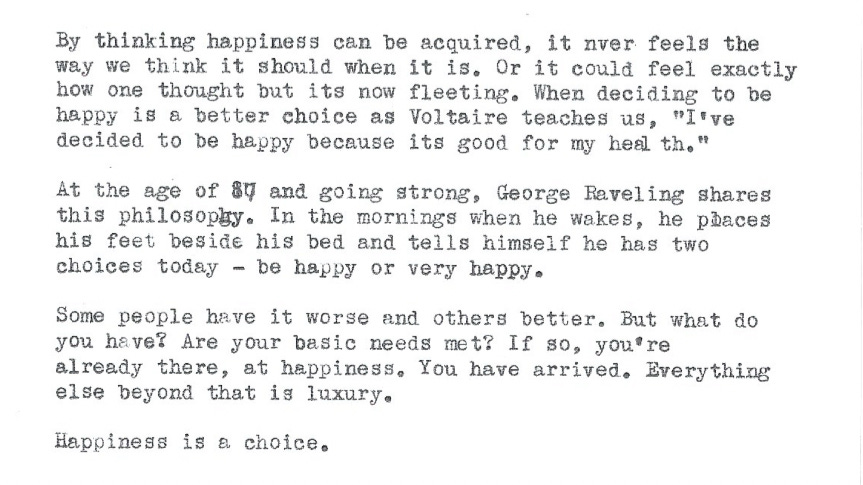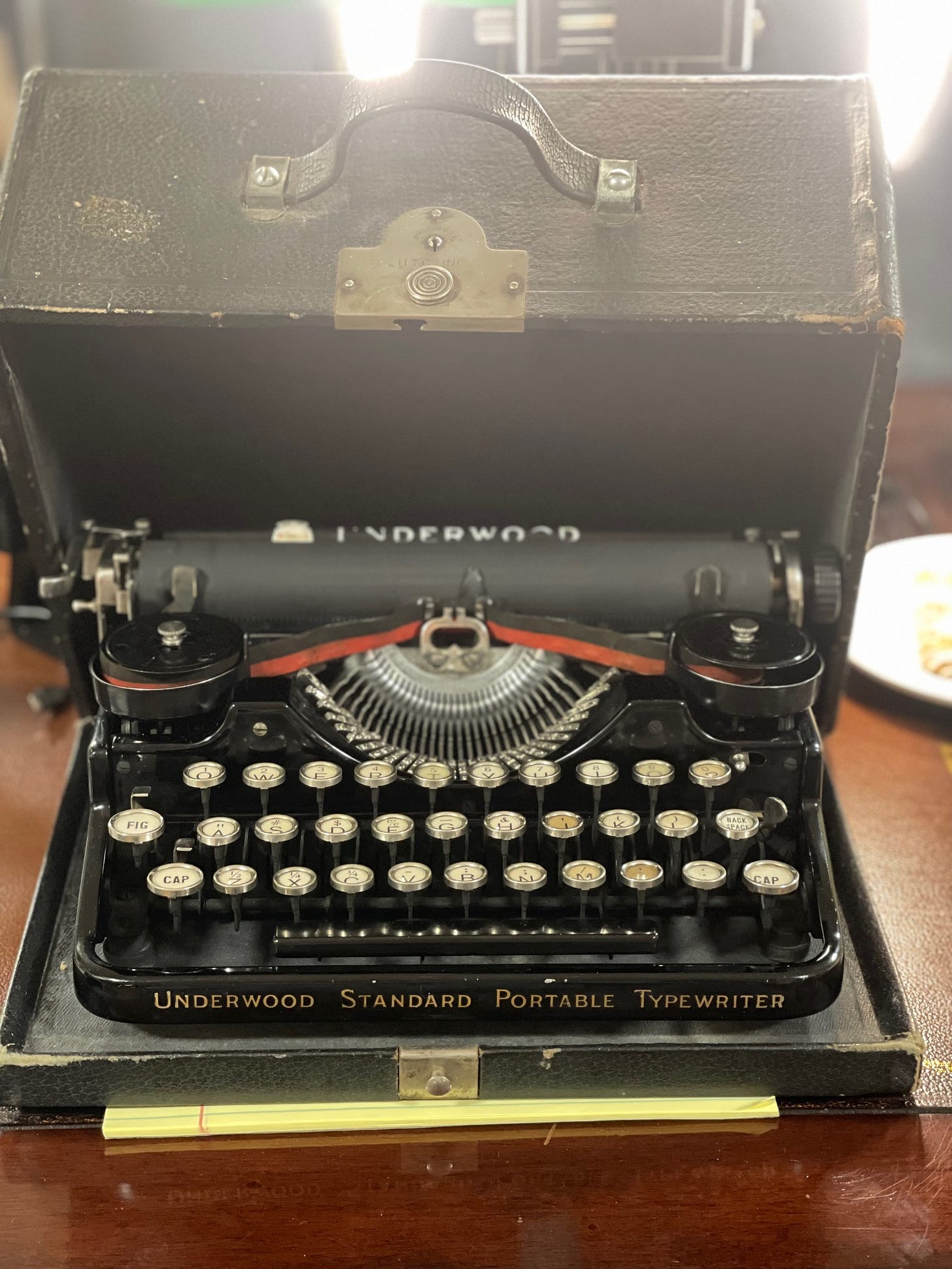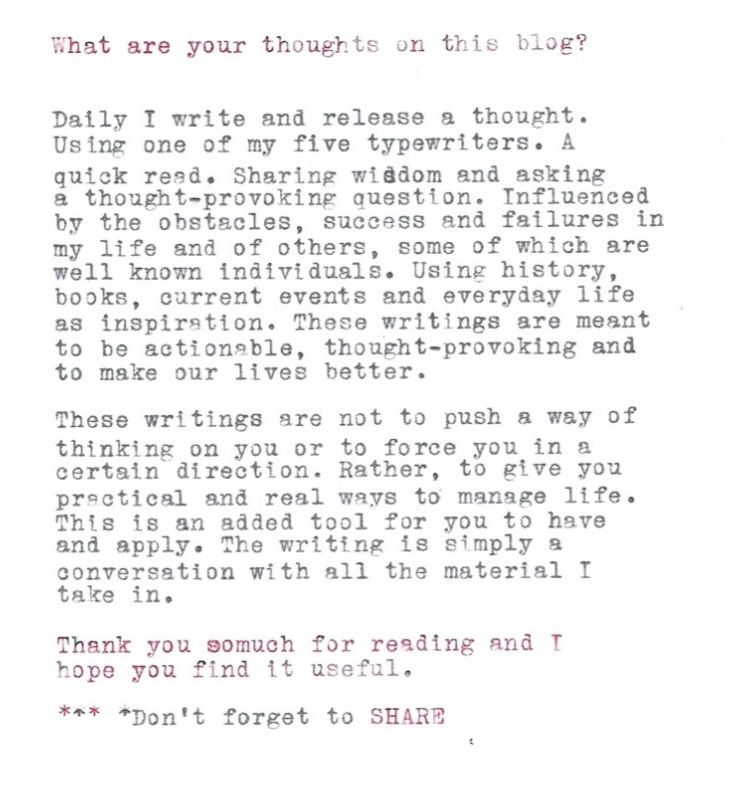How do you know if you're happy? Can it be found? Created? Is it a place one arrives to or is it a constant direction taken with no end in sight? How do you measure it? Is it by the views or likes you get? The square footage of your home? The price you paid for your clothes or the brand that is sewn on the label? Is it climbing the career ladder or watching the bank or investment account balance grow?
Questions such as these were being pondered in 1989 by Sonja Lyubomirsky as she walked the campus at Stanford with an advisor. She would eventually earn her PhD in social psychology and decided to focus her efforts on studying happiness. As Nietzsche wrote, "all truly great thoughts are conceived while walking."
Sonja read everything she could find at the time which wasn’t much. Her discovery was unknown at the time, which was the topic of happiness was only impacting certain parts of the globe. The U.S., Europe and Australia. So she was able to pinpoint where but the why, was more impactful. These countries had the luxury of time to think of their own happiness. They had the space to engage with such ideas. The rest of the world did not.
The remainder of the world did not have freedom or space, the luxury to ponder what is happiness and how to get it. They mostly lived unstable and uncertain lives. To wonder how food would get to their tables or where to find the next job. The conclusion by Sonja was that happiness is a choice of our minds. Not having to do with a certain situation or outcome.
We can see this when people buy the home they want or car. Get the job or the promotion with the pay increase. What they thought would make them happy, just doesn't. Part of that is basing happiness on an external force, also, as Sonja suggests, how many of them just decide be happy?
By thinking happiness can be acquired, it never feels the way we think it should when it is. Or it could feel exactly how one thought but it’s now fleeting. When deciding to be happy is a better choice as Voltaire teaches us, "I've decided to be happy because it’s good for my health."
At the age of 87 and going strong, George Raveling shares this philosophy. In the mornings when he wakes, he places his feet beside his bed and tells himself he has two choices today - be happy or very happy.
Some people have it worse and others better. But what do you have? Are your basic needs met? If so, you're already there, at happiness. You have arrived. Everything else beyond that is luxury.
Happiness is a choice.







